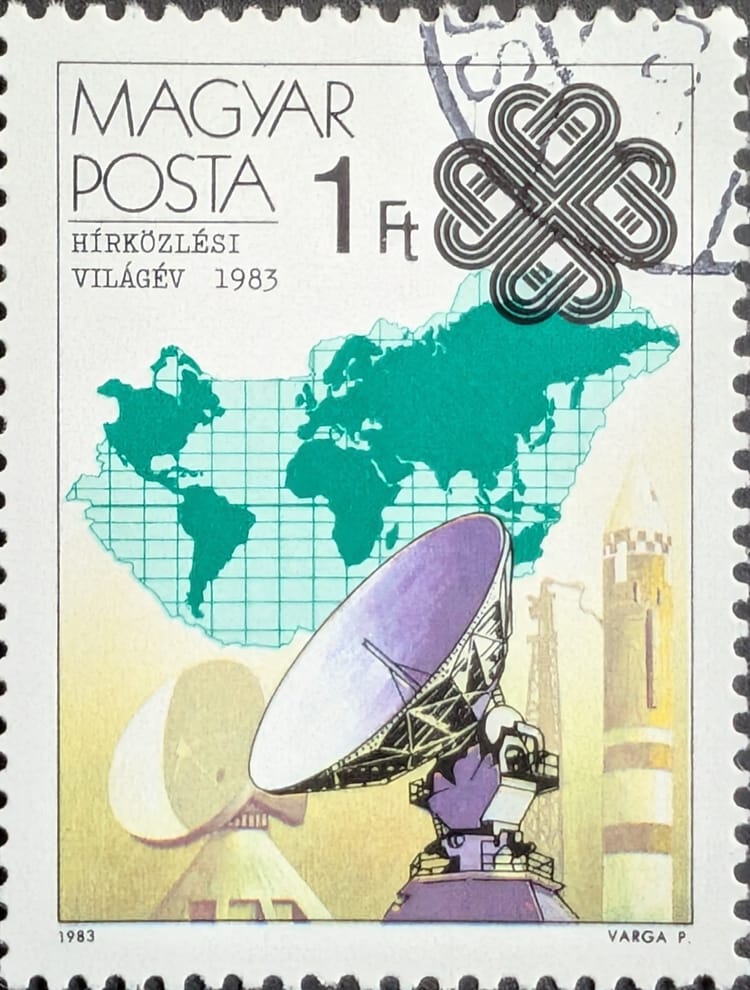Wither, European Launch?

Three for the Price of One
While working at Florida’s Space Coast during the past few days, it’s hard not to notice launches happening at literally all hours of the day. I was there to support the launch of the IMAP (Interstellar Mapping and Acceleration Probe) satellite on a SpaceX Falcon 9 on the morning of September 24th (about 0730). That launch also deployed two other satellites with United Kingdom ties (via BAE Systems): Space Weather Follow On-Lagrange 1 and the Carruthers Geocorona Observatory.
Then, a little after 0430 the next morning, a rumble woke me from a nice, sound sleep. It turned out that the rumble was from a SpaceX Falcon 9 launching 28 Starlink satellites. And then, when I was shuffling through the hotel lobby for breakfast later that morning, I was told there would be another launch in four minutes. So, from the hotel’s back patio while scooping a yogurt parfait into my mouth, I watched the launch of a United Launch Alliance Atlas V loaded with 27 Kuiper satellites.
It was glorious! And the launch wasn’t too shabby either.
Three-Fourths in 25 Hours
That was three launches from the Space Coast in 25 hours. With that number in mind, I quickly looked at my database to see how many successful orbital launches had been conducted worldwide so far in 2025 (217). Up to the Atlas V launch on the 25th, US companies had been responsible for 140 successful launches. China’s launch providers had conducted slightly over one-third of the US total–55. Russia? Thirteen. France and Europe? Four.
That’s right. For all of 2025, Arianespace has only managed to launch four times–twice with a Vega-C and twice using the Ariane 6. By comparison, US companies had launched three-quarters of Europe’s annual total in a little over a day–all from the Space Coast. The Ariane 6–France’s current workhorse- has only launched three times in its existence so far.
If European Space Sovereignty is the goal, then Europe’s current launch cadence is an extremely perplexing (and slow) way to achieve that. Sure, four launches are better than the three that Arianespace launched last year. And the three the company launched in 2023. But it’s not competitive; not a position that high-tech Europe should be in. It should not be just slightly ahead of India and Japan.
I’ve written about Europe’s launch problems before (and not that long ago, either), so longtime subscribers may not be too surprised by Europe’s situation. I will note that I expected a little more from Arianespace than whatever it is the company has been doing during the past four years. It’s a launch business. It’s supposed to be launching rockets–the more the better.
Instead, the company seems to be, well, grounded for most of the time. At least it’s launched more than Iran this year, but since that nation has launched nothing, it’s a low bar to surmount. There was a time when France launched many rockets, an average of ten or eleven annually.
But the explanation for the low launch cadence is elusive. It’s not like Arianespace is a new company, finding its legs in the launch business. The company has decades of experience to draw on and improve. The company had a loyal customer base and a reliable launch service. It theoretically has a raft of launch contracts it still needs to fulfill. It’s not even as if Arianespace has trouble finding backers, either. France will not let it fail, if only as a point of pride. Certainly, for creating jobs.
That was one of the reasons Arianespace provided for why it chose to make Ariane 6 non-reusable: employment. Early on, the company’s CEO, Alain Charmeau, was thinking in terms of a space jobs program for Ariane 6.
“In essence, Charmeau is arguing that the space industry -- in Germany at least -- is actually a jobs program: "It creates jobs in Germany. And those companies and their workers pay taxes, which end up in the German state budget." Ariane builds multiple expendable rockets, instead of one reusable rocket, because this creates more work for German workers -- even if that work turns out to be essentially make-work.”
Three Years, One Contract, Zero Launches?
That rationale sounds…okay (maybe). Until the numbers show that Ariane 6s are not launching often (while the reusable Falcon 9 is leaving it in the dust). If Arianespace is maintaining such a low manufacturing rate, then are enough European workers even benefiting? If the Ariane 6 isn’t launching that often, is there a need to manufacture more? Are there more being manufactured?
Those familiar with the industry might answer that, sure, there is a need. More must be manufactured, and hopefully at a fast clip. The company has those aforementioned contractual obligations after all. Didn’t Arianespace sign a contract with Amazon Kuiper for 18 Ariane 6 rockets?
Yes, it did. There were all sorts of positive prognostications about it in 2022, when the contract was announced. A little curious, considering that all three companies (Arianespace, Blue Origin, & ULA) Amazon contracted with were to launch its satellites with ghost rockets–rockets that didn’t exist, that had yet to be even test-launched. As of this September, Arianespace still hasn’t launched Kuiper and wouldn’t (couldn’t?) say that it would begin launching Kuiper satellites by December 2025.
In the meantime, Amazon now uses SpaceX to launch its Kuiper constellation, probably at a discount when compared with Arianespace. SpaceX has launched Kuiper satellite batches at least twice so far, while ULA has launched Kuiper batches three times, including the morning of September 25th.
Even if Arianespace manages to achieve its stated goal of ten Ariane 6 launches per year…that sounds plain lazy when compared with SpaceX’s 122 in 2025 (we’re not even finished with September). This isn’t 1998, 2008, or even 2018. Arianespace needs to launch more often.
Also, the company must FIND customers to launch for, not expect them to fall into its lap. Arianespace can’t afford to wait. Its launches need to be more reasonably priced, too. Many prospective customers aren’t willing to subsidize the company with its high launch prices. The French company is finding that European governments and companies are all too willing to pay less for SpaceX to deliver more.
It’s a worryingly American attitude, a threat against European Space Sovereignty.
To be clear, there’s nothing wrong with the goal of European Space Sovereignty (especially considering conditions across the Atlantic), but then something–anything–must support that concept and bring it to fruition, with clarity and speed. While it’s doubtful that Arianespace can do this, the European space sector must look ahead of SpaceX’s and Rocket Lab’s plans and act accordingly.
This is a task facing all rocket launch service providers. It’s not enough to reach parity with the current front-runners. Competitors must set the competitive landscape, not accept the competition’s terms.
Instead, Europe appears to believe it can implement its plan in a business-as-usual manner, with no clear sense of urgency. Everything is fine. Arianespace seems to be sniffing the gas within that framework, too. Business-as-usual might work in a bubble, but in reality, Europe’s launch capability appears to be withering on the vine. If only it were different.
Imagine three launches from Kourou within 25 hours–because the reality is much different.
This is my writing, and these are my thoughts. They ARE NOT those of anyone or group I work for.




Comments ()